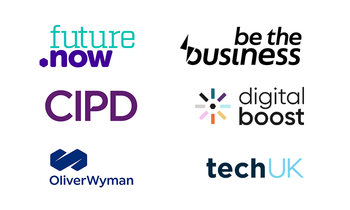techUK & FutureDotNow raise alarm over workforce readiness for AI
Leading industry coalition for bridging the digital skills gap, FutureDotNow, has revealed serious questions around the readiness of the UK workforce to respond to an AI-driven world of work following recent IPPR report on the impact of AI on UK jobs and the economy.
The report, which places ‘up to 8 million UK jobs at risk from AI’ is a ‘conservative estimate’ according to the charitable organisation. The charity asserts the risk is much higher as more than half of the workforce – in all sectors and at all levels – are missing digital skills government and industry agree are essential for work.
Given the scale of the digital skills gap in the UK – with 54% of the UK workforce unable to do all 20 essential digital tasks– the radical change AI will bring to jobs risks leaving behind the millions of workers currently without the full suite of digital basics. This is not an advanced skills gap. Millions of UK workers are without the very basics, from updating security settings or collaborating online, to accessing digital payslips.
Research on AI from leading organisations such as the International Monetary Fund (IMF) and Goldman Sachs suggest up to two thirds of roles are at risk of disruption or full automation by AI.

FutureDotNow, which last year published‘The UK workforce digital skills gap: Why closing it matters and a roadmap for action’ with insight from DSIT, DfE, DWP and the Cabinet Office, are in a unique position to assess the core digital capability of the workforce and the potential impact on it from AI. The organisation and its impressive list of over 230 members is focussed on building core digital capability throughout the UK workforce and ensuring people have the skills to participate and thrive in a higher skilled economy.
Given AI and automation are going to transform the world of work, more needs to be done to understand where people are now, ensuring UK workers have the digital foundations and confidence needed to respond, and to capitalise on opportunities.
Liz Williams MBE, FutureDotNow CEO says:
“Technology is at the heart of realising the UK’s productivity strategy, but we are already leaving people behind and that is before we start looking at the serious implications AI will have on jobs. There are significant Essential Digital Skills gaps across the working population, in every sector, nation and region, and in every age group, and the advent of AI is likely to only widen this gap.”
Antony Walker, Deputy CEO of techUK commented:
“As AI becomes more mainstream, it’s crucial to adopt a forward-thinking, long-term skills strategy to ensure people are well-prepared to harness the full potential of this technological advancement. Providing support to businesses to empower their employees with the right skills to understand and effectively adopt AI is important for achieving better life outcomes.”
Deborah O’Neill, Head of Digital Europe for Oliver Wyman commented:
“Embracing the transformative power of technology, particularly AI, the future of work beckons a new era where skills transcend roles and backgrounds. Ensuring universal access to these skills not only enriches individuals but also empowers businesses to thrive through positive and seamless interactions with both employees and customers, thereby shaping prosperous economic outcomes for all.”
Peter Cheese, CEO of CIPD says:
“Historically the UK has underinvested in skills and in technology relative to most other leading economies, and that gap becomes ever more apparent with the impact of digital and AI that can enable great benefits in productivity. As FutureDotNow have highlighted, we need to develop the essential digital skills across our workforces to respond to the opportunities, and work together to make this happen.”
Karen Licurse, Managing Director of Digital Boost says:
“Small businesses are the largest employers in the UK, accounting for 61% of the workforce. They’re essential to vibrant communities and to inclusive economic growth. And yet, in our work every day we see that so many of them are missing essential digital skills, putting their businesses at risk if they’re not safe and legal online and, importantly, missing out on the opportunities technology can bring. Since this gap will only widen as AI usage grows – we support FutureDotNow’s call for action and look forward to collaborating with them and their members to drive real change.”
Anthony Impey MBE, CEO of Be the Business says:
“AI could be the single biggest boost to productivity in a generation. But, it’s essential that small and mid-size businesses are not left behind – especially when 53% already report that their tech investments fail. Which means that more than ever before, we need a plan and take action to build those core digital skills across every part of the workforce.”




